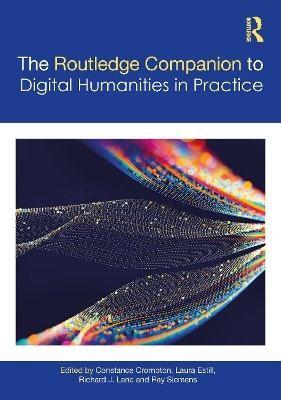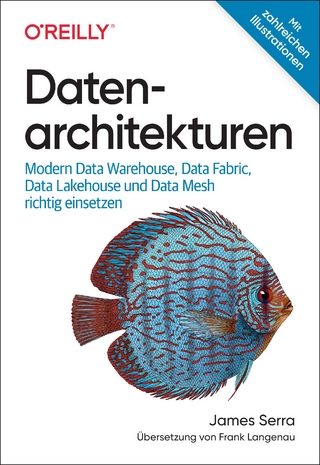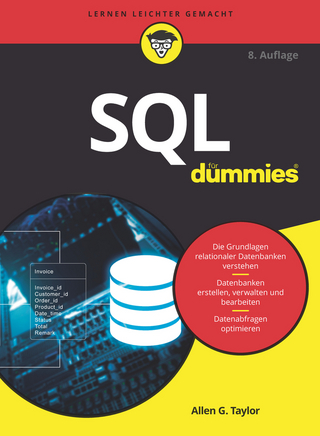
The Companion to Digital Humanities in Practice
Routledge (Verlag)
978-1-032-33385-4 (ISBN)
- Noch nicht erschienen (ca. April 2025)
- Versandkostenfrei innerhalb Deutschlands
- Auch auf Rechnung
- Verfügbarkeit in der Filiale vor Ort prüfen
- Artikel merken
Building on the foundation of earlier publications that focused on practice in the field, this Companion provides a significant treatment of pertinent issues and contexts, extending breadth and depth, as well as reach, in terms of geographical diversity of topics and contributors. Divided into four sections, each with a high-level practice-oriented focus, the volume covers data; tools and techniques; communication, dissemination and engagement; and pedagogical practices. Contributors to the volume include both established and emerging scholars. Foregrounding and critically reviewing the emergence and development of standards-based communities of practice, the Companion provides an overview of core competencies; conceptualized case studies; and links to further reading, training materials and exercises.
The Companion to Digital Humanities in Practice will appeal to academics, researchers, and postgraduate students working in DH, literary studies, history, and the humanities more broadly. It should also be of interest to professionals working in DH and galleries, libraries, archives, and museums.
Constance Crompton is a white, queer, able-bodied settler and Canada Research Chair in Digital Humanities. She is a member of several research project teams: Lesbian and Gay Liberation in Canada, Linked Infrastructure for Networked Cultural Scholarship, the Implementing New Knowledge Environments Partnership, and the Transgender Media Portal. She is the co-editor of two volumes, Doing Digital Humanities and Doing More Digital Humanities, with Ray Siemens and Richard Lane (Routledge 2016, 2020). She lives and works on unceded Algonquin land. Dr. Laura Estill is a Canada Research Chair in Digital Humanities and Professor of English at St. Francis Xavier University in Mi’kma’ki (Nova Scotia). Works include Digital Humanities Workshops (2023), with Jennifer Guiliano, and a special issue of Interdisciplinary Digital Engagement in Arts & Humanities (IDEAH, 2023), with Constance Crompton and Ray Siemens. She directs the Canadian Certificate in Digital Humanities, ccdhhn.ca. Richard J. Lane is Professor of English and Director of the Canada Foundation for Innovation (CFI) funded MeTA Digital Humanities Lab at Vancouver Island University, Canada. His research interests include the intersection of literary theory, philosophy and the digital humanities, with recent projects on DH and AI, big data, machine reading, machine learning, and topic modelling. He collaborates on research with the VIU Canadian Letters and Images Project, with the support of CFI, VIU and the British Columbia Knowledge Development Fund. Ray Siemens FRSC is Distinguished Professor in the Faculty of Humanities at the University of Victoria, Canada, in English and Computer Science, and past Canada Research Chair in Humanities Computing; in 2019, he was also Leverhulme Visiting Professor at U Loughborough and, 2019-22, Global Innovation Chair in Digital Humanities in the Centre for 21st Century Humanities at U Newcastle.
List of figures; List of Contributors; Acknowledgements; Introduction: 1. Digital Humanities in Practice, Across Data, Tools and Techniques, Communication and Engagement, and Pedagogy; Section 1: Data – 2. From a “bag of names” to a “name index”: Using Wikipedia and Wikidata to create an enriched list of person names; 3. Databasing As Research: new paradigms for the long tail…; 4. Unicorns, Janitors, Ninjas, Wizards, and Rock Stars; 5. Editing mundane texts across the digital divide: The case of Arabic periodicals from the late nineteenth-century Eastern Mediterranean; 6. Sharing Data for Handwritten Text Recognition (HTR); 7. Digital Public Health Advocacy in Nigeria: A Multimodal Study of WhatsApp-mediated COVID-19 Posts; 8. Why Digital Humanists Should Emphasize Situated Data over Capta; Section 2: Tools and Techniques – 9. Digitizing the container: books as objects in the digital medium; 10. Modeling cultural heritage materials for discovery and analysis; 11. IIIF for Digital Humanities; 12. What is Humanities Mapping?; 13. Mapping and 3D Modelling: Expanding 19th-century New York City Bookstore Geographies; 14. Enacting Our Values: Practical Applications of Ethics in the Transgender Media Lab; 15. Against Violent Quantification: Lessons from the Bellevue Almshouse Project; 16. Thinking-Through the Ethics of Artificial Intelligence; Section 3: Communication and Engagement – 17. Community and Digitality in/of Indian DH: Exploring Legacies, Presents and Futures; 18. Valuing and Evaluating Digital Scholarship as a Social Justice Practice; 19. Effect, Affect, Engagement: Digital Storytelling as Personal Process; 20. The influence of communication on digital humanities training; 21. Some Things Can't be Measured: Rethinking Context, Metrics and Disciplinarity in the Digital Humanities; 22. Public Works: Ecological Inspiration for Equitable Knowledge Production; Section 4: Pedagogy – 23. Intersectional Ethics of Care and Co-Creation in Digital Humanities Pedagogy; 24. Student-led Digital Projects in Cultural Heritage Sector Collaborations; 25. Digital Pedagogy as Topoi: Assignments that Encourage ‘Play’ within the History of Race, Space and State Power in Apartheid South Africa; 26. Creative Writing and Digital Humanities: Between Literature and Technology; 27. Assembling Body, Mind, and Spirit in Digital Humanities Teaching Praxis; 28. Two ways to engage students in a digital project, an experience in Mexico; 29. The Risks and Rewards of Implementing Digital Humanities Methodologies in Modern Language Graduate Research; Index.
| Erscheint lt. Verlag | 3.4.2025 |
|---|---|
| Reihe/Serie | Routledge Companions to the Digital Humanities |
| Zusatzinfo | 3 Tables, black and white; 116 Halftones, black and white; 116 Illustrations, black and white |
| Verlagsort | London |
| Sprache | englisch |
| Maße | 174 x 246 mm |
| Gewicht | 453 g |
| Themenwelt | Mathematik / Informatik ► Informatik ► Datenbanken |
| Mathematik / Informatik ► Informatik ► Theorie / Studium | |
| Mathematik / Informatik ► Informatik ► Web / Internet | |
| Sozialwissenschaften ► Kommunikation / Medien ► Buchhandel / Bibliothekswesen | |
| Sozialwissenschaften ► Pädagogik | |
| ISBN-10 | 1-032-33385-5 / 1032333855 |
| ISBN-13 | 978-1-032-33385-4 / 9781032333854 |
| Zustand | Neuware |
| Informationen gemäß Produktsicherheitsverordnung (GPSR) | |
| Haben Sie eine Frage zum Produkt? |
aus dem Bereich


